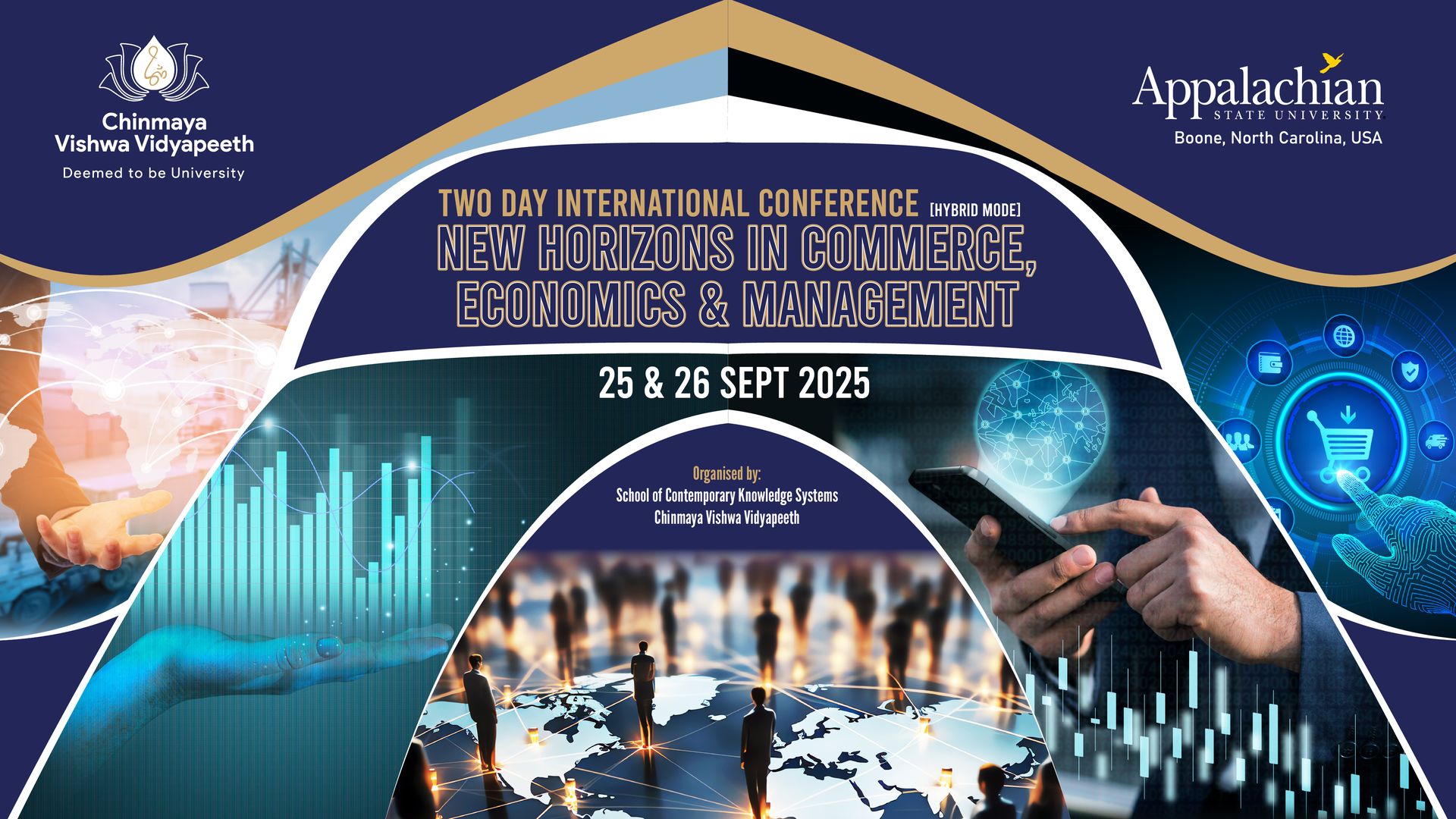
Keynote Speakers

Dr. Dinesh Davè
Director & Professor of Supply Chain Management
Department of Marketing & Supply Chain Management
John A. Walker College of Business
Appalachian State University
Boone, North Carolina 28608
USA

Dr. Laura L. Brewer
Assistant Professor of Supply Chain Management
Department of Marketing & Supply Chain Management
John A. Walker College of Business
Appalachian State University
Boone, North Carolina 28608
USA

Prof. Doug Marrelli
Special Faculty & Practitioner in Residence Department of Marketing & Supply Chain Management
John A. Walker College of Business
Appalachian State University
Boone, North Carolina 28608
USA

Dr. Santosh Nandi
Assistant Professor of Management & The Honors College Academic Mentor, The Honors College Department of Management
John A. Walker College of Business
Appalachian State University
Boone, North Carolina 28608
USA

Dr. David Marlett
Managing Director of the Brantley Risk & Insurance Center and Professor of Insurance Department of Finance, Banking and Insurance
John A. Walker College of Business
Appalachian State University
Boone, North Carolina 28608
USA

Dr. Dave McEvoy
Professor & Head Department of Economics
John A. Walker College of Business
Appalachian State University
Boone, North Carolina 28608
USA
About Chinmaya Vishwa Vidyapeeth (CVV)
Chinmaya Vishwa Vidyapeeth Deemed to be University is the only private deemed university in the ‘de novo’ category in Kerala with immense potential and state-of-the-art infrastructure. Established in 2016, its core mission is to blend the time-tested wisdom of India with present-day knowledge fields. With campuses in Kerala and Maharashtra, Chinmaya Vishwa Vidyapeeth (CVV) offers a vibrant student life through holistic development guided by its core values, such as purity, spirituality, practicality, and innovation. The University is the pinnacle of the educational legacy of Chinmaya Mission, which has more than 100 academic institutions and 350 centres in India and abroad. It is built with an energy level that has grown over the last 50 blistering years of undaunting effort from our world-class teachers to level up the education and lives of thousands of students.
CVV is recognised by the University Grants Commission (UGC) under Section 3 of the UGC Act 1956; its engineering and management programmes are approved by the All India Council for Technical Education (AICTE); and its education programmes are approved by the National Council for Teacher Education (NCTE). The university is also an active member of the Association of Indian Universities (AIU). The University offers a range of courses with common streams, distinctive electives, and supplementary subjects. The undergraduate, postgraduate and doctoral programmes blend traditional and contemporary knowledge with the streams of engineering, commerce, management, psychology, Sanskrit, and education (English and Mathematics).
About Appalachian State University (APP STATE)
As a premier public institution, Appalachian State University prepares students to lead purposeful lives. App State is one of 17 campuses in the University of North Carolina System, with a national reputation for innovative teaching and opening access to high-quality, affordable education for all. App State was founded in 1899. The pioneering spirit necessary to overcome the mountains’ hardships quickly characterised the institution, giving App State a special niche in higher education that continues today. App State aspires to be the destination institution for dedicated students who seek challenging academic programs and co-curricular experiences, engaged faculty and a vibrant campus culture that will shape them into engaged, responsible global citizens. Inspired by the ideal of a sustainable community, we seek to deliver the Southeast’s best comprehensive, progressive education.
After more than a century, students still feel the pull of this unique place to transform their lives, and App State has remained focused on providing students with educational experiences that are not only life-changing but world-changing. The university enrols more than 21,000 students, has a low student-to-faculty ratio and offers more than 150 undergraduate and 80 graduate majors at its Boone and Hickory campuses and through App State Online. App State is accredited by the Commission on Colleges of the Southern Association of Colleges and Schools to award baccalaureate, master’s, intermediate and doctoral degrees.
School of Contemporary Knowledge Systems
The School of Contemporary Knowledge Systems OF Chinmaya Vishwa Vidyapeeth, Kochi, is offering programmes like PhD, BCom (Honours) (aligned to ACCA courses), and BBA(Honours). A common and unique feature of all these programmes is the blend of modern streams of knowledge with traditional Indian Knowledge Systems. The programmes inculcate ethical values in education so students can lead honest lives.
The school’s Doctoral Programme is designed to develop outstanding education researchers with a wide range of research skills, in-depth knowledge, and practical expertise in various domains of Commerce, Management, Economics, and Indian Knowledge Systems. The school also facilitates interdisciplinary research to inculcate the relevance of Indian scriptures to modern-day management.
SCOPE OF THE CONFERENCE
With an ever-growing emphasis on fostering domestic production capabilities and attracting foreign direct investment, India is poised to become a global manufacturing hub by reshaping the economic landscape. This shift not only strengthens the economy but also empowers the workforce, paving the way for sustainable development and innovation across various sectors. The third edition of the international conference, “New Horizon in Commerce, Economics and Management,” aims to explore India’s potential trajectory toward becoming a global superpower by examining the intricate connections between key drivers of economic growth and sustainable development. The conference will highlight India’s unique competitive advantages and its potential to assert itself as a leader on the global stage.
One of the conference’s themes will be India’s commitment to sustainable development, which is crucial in the country’s journey toward becoming a global superpower. By aligning efforts with the United Nations’ Sustainable Development Goals (SDGs), India can implement targeted policy initiatives that promote sustainable management practices across various sectors. The integration of environmental, social, and governance (ESG) factors into government strategies will not only foster a circular economy but will also reinforce India’s position as a leader in sustainable practices on the global stage. The conference will highlight the importance of collaboration between policymakers and the private sector in achieving these long-term sustainability goals, ultimately enhancing India’s economic resilience and global influence.
Furthermore, the evolving logistics and supply chain management landscape is critical to India’s aspirations. The transition from ‘just in time’ to ‘just in case’ logistics emphasises the need for more robust and adaptable supply chains. This shift is essential for maintaining competitive advantages in a globalised world, primarily as India seeks to enhance its manufacturing capabilities. Experts at the conference will examine how businesses leverage government policies and reforms to optimise their operational strategies, ensuring agility and responsiveness to changes in global market dynamics. By addressing these logistics challenges, India can better position itself in international trade, strengthening its path to becoming a global powerhouse.
In addition, the contribution of the Indian Knowledge System (IKS) is integral to shaping a distinctive economic perspective on this journey. As India strives to play a significant role in the global economy, incorporating traditional wisdom and indigenous practices can provide innovative solutions to contemporary challenges. The conference will encourage dialogue on how these rich heritage elements can enhance modern economic strategies, ultimately supporting sustainable growth and development. By harnessing its unique cultural assets, India can further its ambition of being a global leader, leveraging tradition and innovation in its economic policies and practices.
Conference Objectives:
- To explore and analyse key drivers that position India as a potential global superpower in the evolving economic landscape.
- To emphasise India’s commitment to sustainable development and its alignment with the United Nations’ Sustainable Development Goals (SDGs) through targeted policy initiatives.
- To examine the transition in logistics and supply chain management, highlighting strategies for building resilience and agility in global operations.
- To highlight the significance of the Indian Knowledge System (IKS) in providing innovative solutions to contemporary economic challenges while leveraging traditional wisdom for sustainable growth.
Conference Tracks:
Track 1: Commerce
- Using Global Supply Chains for Competitive Advantage
- Innovation in Trade Policies for Sustainable Growth
- Digital Economy: Transforming Commerce in India
- Cultural Influences on Global Business Practices
- Emerging Markets and India’s Positioning
- Strategic Alliances: Enhancing Trade Relations Worldwide
- Resilient Business Models in Uncertain Markets
- Financial Market Trends Contributing to Superpower Growth
- Sustainable Trade Practices Aligned with SDGs
- E-commerce and Digital Transformation for Global Reach
- Cultural Heritage in Commerce: Leveraging Tradition
Track 2: Management
- Leadership Strategies for Economic Growth
- Sustainable Business Practices in a Global Context
- Innovation Management: Driving Economic Growth
- Flexible Organizations: Adapting to Market Changes
- Collaborative Approaches to Sustainable Development
- Crisis Management and Strategic Resilience
- Workforce Empowerment for Global Competitiveness
- Strategic Management in a Global Landscape
- Sustainable Management Practices Aligned with SDGs
- Logistics and Supply Chain Agility for Resilience
- Integrating Indian Knowledge System in Management
Track 3: Economics
- Assessing Economic Policies for Future Growth
- Investment Strategies: Fueling India’s Economic Trajectory
- Fiscal Reforms: Pathways to Economic Resilience
- The Role of Technology in Economic Development
- Balancing Growth and Sustainability in Economic Planning
- Evaluating India’s Global Economic Partnerships
- Economic Diversification Strategies for Sustainability
- Economic Drivers for Global Superpower Status
- Aligning Economic Growth with Sustainable Development
- Resilience in Economic Systems: Adapting to Change
- Contribution of Indian Knowledge System to Economic Innovation
The themes are not limited to the above sub-themes.
WHO SHOULD PARTICIPATE?
This two-day international conference, in hybrid mode, is open to academicians, faculties, research scholars, students from UG and PG programmes, executives of government and non-governmental organisations, and public policy experts globally.
AUTHORS GUIDELINES
- Paper Format: Single Column, A4 Size and 1.5 line spacing
- Font Style: Times New Roman (size 12)
- First page: Title, Author(s) Name(s) and Affiliation(S) with contact email id and postal address
- Second page onwards: Title, Abstract (limited to 300 words), Keywords(s) followed by the main text with Introduction, Literature review and Research Gap, Research problem and Significance of the study, Research methodology, Analysis and interpretations, Conclusions, Suggestions and Reference as per APA style (7th edition).
- The editorial board will review articles, and only those approved by reviewers will be selected for presentation at the conference. For accepted papers, one of the authors must present the paper online or offline. Please note that all the research paper presenters will be issued an electronic certificate.
- The editorial board will review the paper, and only those approved by the reviewers will be selected for the conference presentation.
- The submission categories acceptable in the seminar are:
- Conceptual paper (based on literature view with research implications and future research directions, research models, theory related)
- Empirical research paper (quantitative, qualitative, and mixed methodology)
- Policy research paper (critically examining national or international policies)
- Case studies (without teaching notes).
For Abstract Submission: https://forms.gle/Q3vzQSgRxshvE2aFA
PUBLICATION OPPORTUNITIES
The selected research papers will be published as chapters in a book bearing ISBN. The conference also helps to associate with several high-quality global journals to provide conference presenters with publishing opportunities.
IMPORTANT DATES
| Deadline for Submitting Abstract: | 25 June 2025 |
| Notification of Abstract Acceptance: | Within 10 Days from Submission Date |
| Deadline for Submitting Full Paper: | 10 August 2025 |
| Notification of Full Paper Acceptance: | 31 August 2025 |
| Last Date for Conference Registration: | 15 September 2025 |
| Conference dates: | 25 and 26 September 2025 |
REGISTRATION FEES
| DETAILS | OFFLINE MODE | ONLINE MODE |
|---|---|---|
| Foreign Delegates | $100 | $100 |
| Industry Professionals | ₹3,000 | ₹2,000 |
| Academicians | ₹2,500 | ₹1,500 |
| Research Scholars | ₹1,500 | ₹1000 |
| Students | ₹750 | ₹500 |
For Enquiry: cks.ic@cvv.ac.in
PAYMENT DETAILS
Name of Beneficiary: Chinmaya Vishwa Vidyapeeth CU A/c CEG
Name of Bank: HDFC Bank, Branch: Pepathy Jn., Ernakulam
A/c No: 50200027727252, IFSC Code: HDFC0001519
Swift Code: HDFCINBBXXX
SPECIAL NOTE
- Registration fee includes conference kit, lunch, refreshments and certificate.
- Co-authors must register separately.
- Outstation participants would be provided accommodation upon request with a minimal charge.
- Duty Certificates will be provided on request.
- From the full papers received, the best papers will be selected and awarded at the Valedictory session.
CONFERENCE ADVISORY COMMITTEE
Patrons: | Prof. Ajay Kapoor, Vice Chancellor, Chinmaya Vishwa Vidyapeeth (CVV) |
| Dr. Dinesh Davè, Director & Professor of Supply Chain Management, Appalachian State University | |
Co-Patrons | Prof. Asokan Thayyullathil, Dean Academics, CVV |
| Prof. Sunitha Grandhee, Dean of Student Affairs | |
| Prof. Ramesh Pattni, Director, Centre of IKS | |
| Dr. David Marlett, Managing Director of the Brantley Risk & Insurance Center & Professor of Insurance, Appalachian State University | |
| Dr. Dave McEvoy, Professor & Head, Department of Economics, Appalachian State University | |
Convenors | Prof. Manjula R Iyer, Deputy Dean – Academics, & Head, School of Contemporary Knowledge Systems, CVV |
| Dr. Santosh Nandi, Assistant Professor of Management & Honors Academic Mentor, The Honors College, Appalachian State University |
CONFERENCE ORGANISING COMMITTEE
| Conference Coordinators | Dr. Abha Mohan, Associate Professor & Assistant Dean, CVV |
| Dr. Santosh Nandi, Assistant Professor of Management & Honors Academic Mentor, The Honors College, Appalachian State University | |
| Dr. Laura Brewer, Assistant Professor of Supply Chain Management, Appalachian State University | |
| Mr. Pratheep Kumar, Assistant Professor, CVV | |
| Joint Faculty Coordinators | Dr. Ambily A S, Associate Professor, CVV |
| Dr. Renju Chandran, Assistant Professor, CVV | |
| Dr. Sanitha A C, Assistant Professor, CVV | |
| Dr. Rakhy K S, Assistant Professor, CVV | |
| Student Coordinators | Aditi Dev K V, Bachelor of Business Administration (Hons.), CVV |
| Nayana Rupesh, Bachelor of Commerce (Hons.), CVV | |
| Joint Student Coordinators | Varun Jayachandran, Bachelor of Commerce (Hons.), CVV |
Contact Us
| Name | Designation | Contact Number |
|---|---|---|
| Prof. Manjula R Iyer | Deputy Dean | 9447026854 |
| Dr. Abha Mohan | Associate Professor | 9895238246 |
| Pratheep Kumar R | Assistant Professor | 9446457772 |
| Varun Jayachandran | Assistant Professor | 6238600503 |
